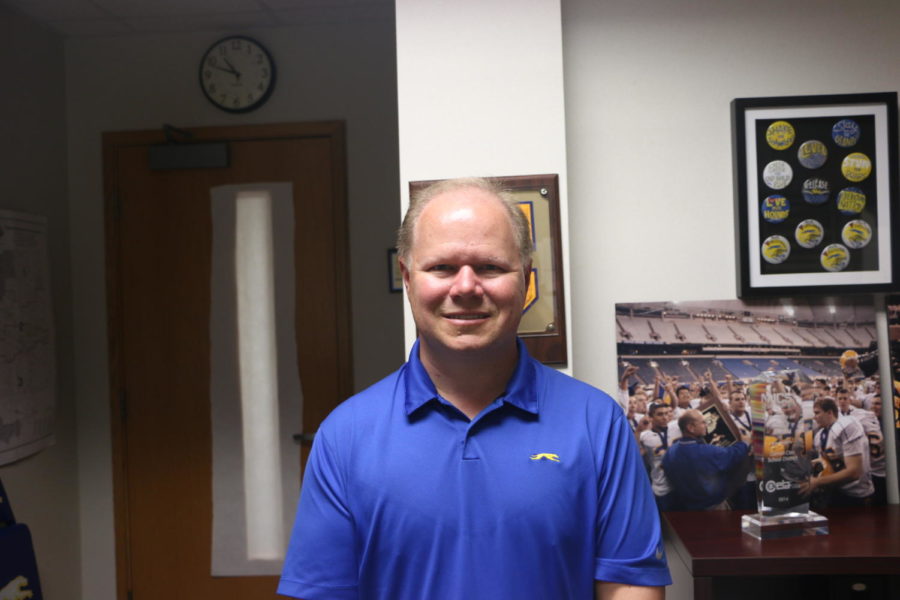Q & A with Athletic Director Jim Inskeep
Why was this program implemented at Carmel High School?
In the summer of 2018, some of the district administrators, myself and (Principal Thomas) Harmas, started talking about ways that we could better educate and protect our students. Over the years, we’ve given a lot of education and material guidelines with our adults, whether that be teachers, sponsors, coaches or other people that we would consider to be caretakers of students. While that’s a really important part of the process, clearly it has not prevented situations to come up where inappropriate relationships are taking place between adults and students. So that was one area that we wanted to address, but there was another part where we started talking about educating students about what the definition of consent was as it relates to sex and what are possible outcomes for cyber-stalking and a lot of the other terms and issues that are relevant right now to our high school population. So we came up with the idea to put together a presentation that would really speak to all of these issues and give some empowerment to our students. Most of that was to know what is the definition of grooming, what does that look like with an adult and a student and for us to, to make sure that they’re not only looking out for themselves but for each other as well. It took us about 14 months to kind of get to an end presentation and start giving it out to students. We started with the bones and the outline of it for several months and then we showed it to several focus groups and made revisions of it based on their feedback before we started fully implementing it this fall. Last spring, our softball and baseball programs were two separate focus groups that we rolled out. This school year, our plan is to implement it with all of our student-athletes across all of our athletic teams. We also did this with the marching band. This fall we’ll be going into different groups of performing arts, which we haven’t completely identified but will include our choral department, and student government. Between all of those groups, we’re going to hit probably about 50% of our student population We’re also looking at an opportunity to present it in the evening for any other students that may want to attend that is not a part of any of those groups. We haven’t narrowed down a date yet for that, but that’s kind of where we’re headed with it.
In the future, do you hope to expand this program to the whole school?
We haven’t made that determination yet. It’s one of those, will it be an annual event? Is it going to be something that we might modify because there’ll always be new things unfortunately from year to year or every other year? I think you can see some components of this continuing on in the future. It’s just a matter of whether that will be an annual thing or whether that’ll be some different interval moving forward.
How did you decide when to present to each sport?
For us, it was mainly (decided) because they’re in sports in season right now. All of our fall sports teams were divided up between four different presentations. We also did two different presentations for the marching band as well. Over a two-week period, we had six different presentations. We’ll set up some new times moving into the winter sports season, but we haven’t figured out completely which other groups will be going at that time. We’ll have another one around March when we get to that last group (of sports teams) that we’ll go through at that time.
What sort of impact do you hope increased awareness will have?
More than anything, it’s knowing how to protect myself. Whether we like it or not, the introduction of alcohol and other things that we put into our bodies throughout the course of high school or into college (can lead to uncomfortable situations). Those things do happen, whether they’re legal or illegal, and just because that’s going on, doesn’t change the rules of consent and its definition of it from a legal standpoint. We want to make sure that we’re educating our kids so that they don’t become victims and also educating them so that they don’t become alleged perpetrators. Both scenarios are very bad outcomes and trying to make others think about what those choices are and others that are around them that might be trying to do them harm are things that we want them to have a better awareness of.
Is there anything I haven’t asked that you think readers should know?
It’s a difficult topic. The areas that we cover are not things that most families talk about around the dinner table. When you talk about some of the terms that come up in the presentation, for a lot of people you don’t talk about those things publicly. For us to provide an opportunity to talk bluntly, and talk from a legal aspect, is a very important thing because it is an area that we’re not doing a very good job telling our younger people about in society. That’s why I firmly believe in this program and the positive outcomes that are going to come from it.
Speak Up!
Freshman Reagan Brinkman
“I feel like if (sexual assault) is a touchy subject for some people and they want some clearance on it, they should have an area to talk about it and have that option. Even if (the program) isn’t open to the whole school, you still have some other resources you can go to.”
Sophomore Sarah Warf
“(Sexual assault has) been a big case lately in the world and it is good to educate people so that they are prepared for that kind of situation. I think (the program) should be mandatory for all students because (sexual assault) can happen to any student.”
Senior Zack Harker
“(The program) is good information for each student to have and it’s not like it needs to be in a specific club. (Since I’m not in these clubs) I would only get this information over the announcements or a teacher talking about it.”



















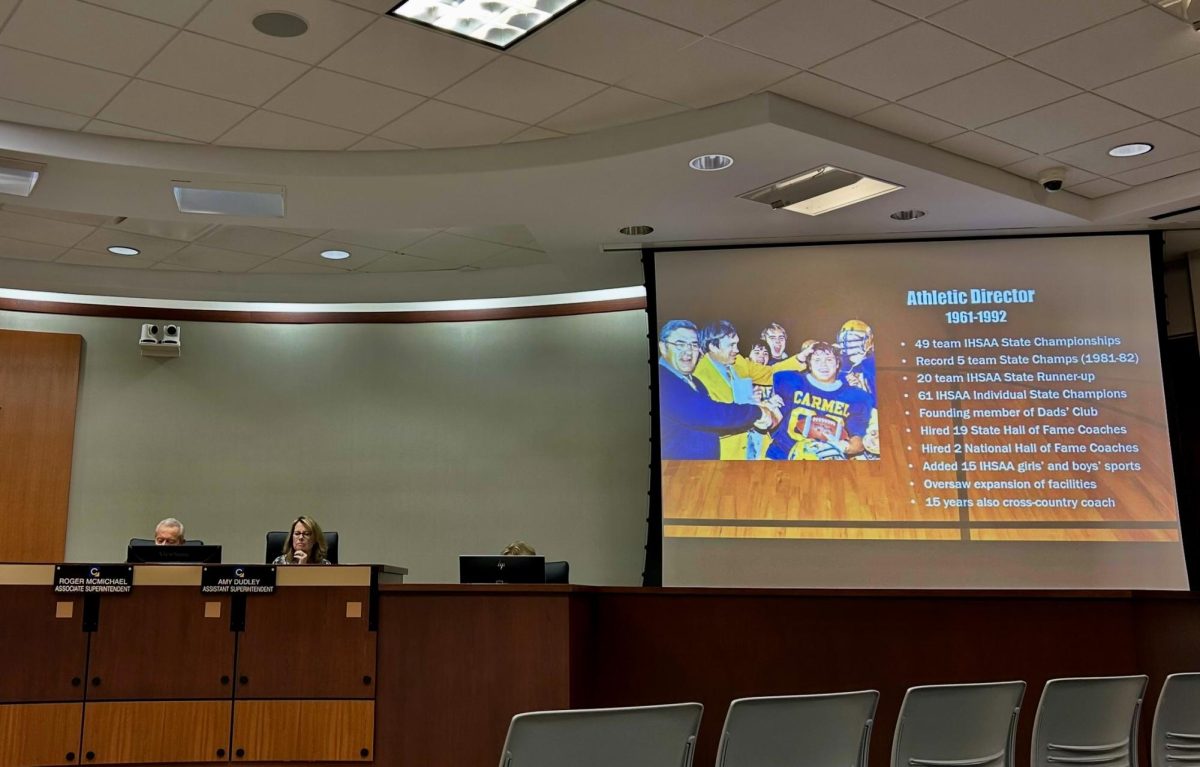
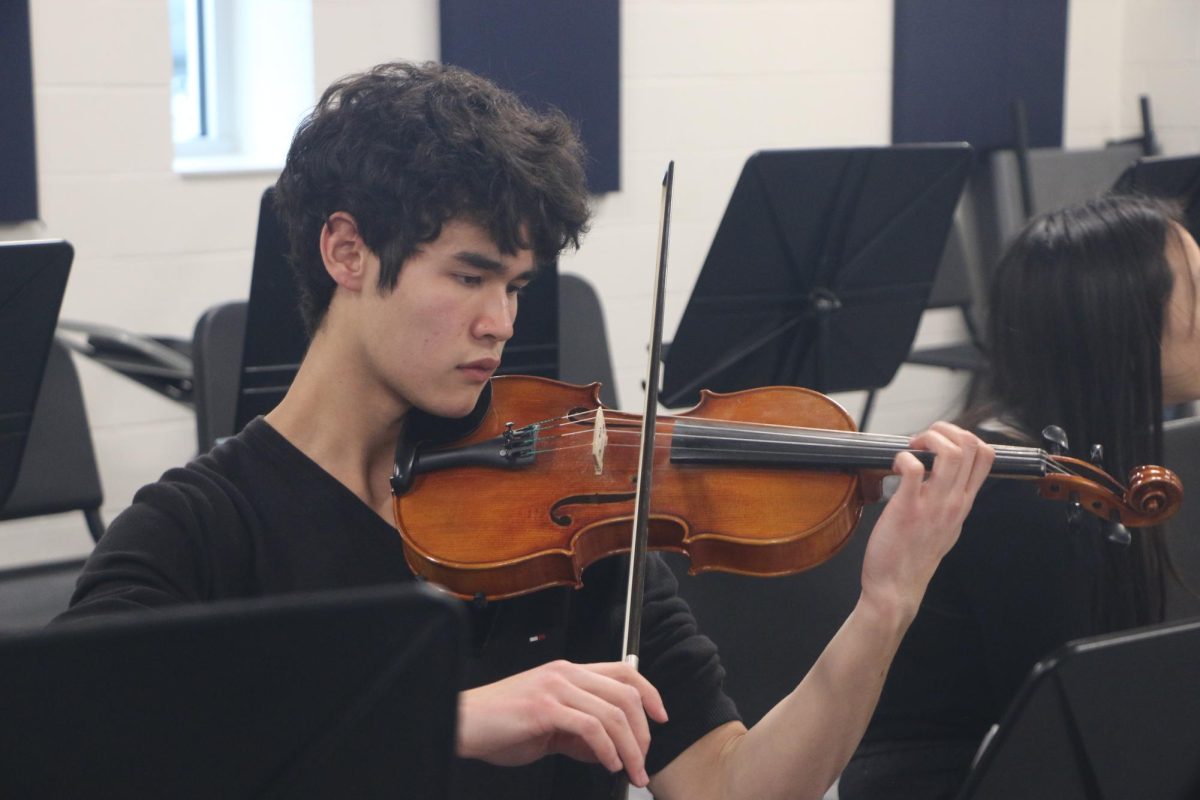




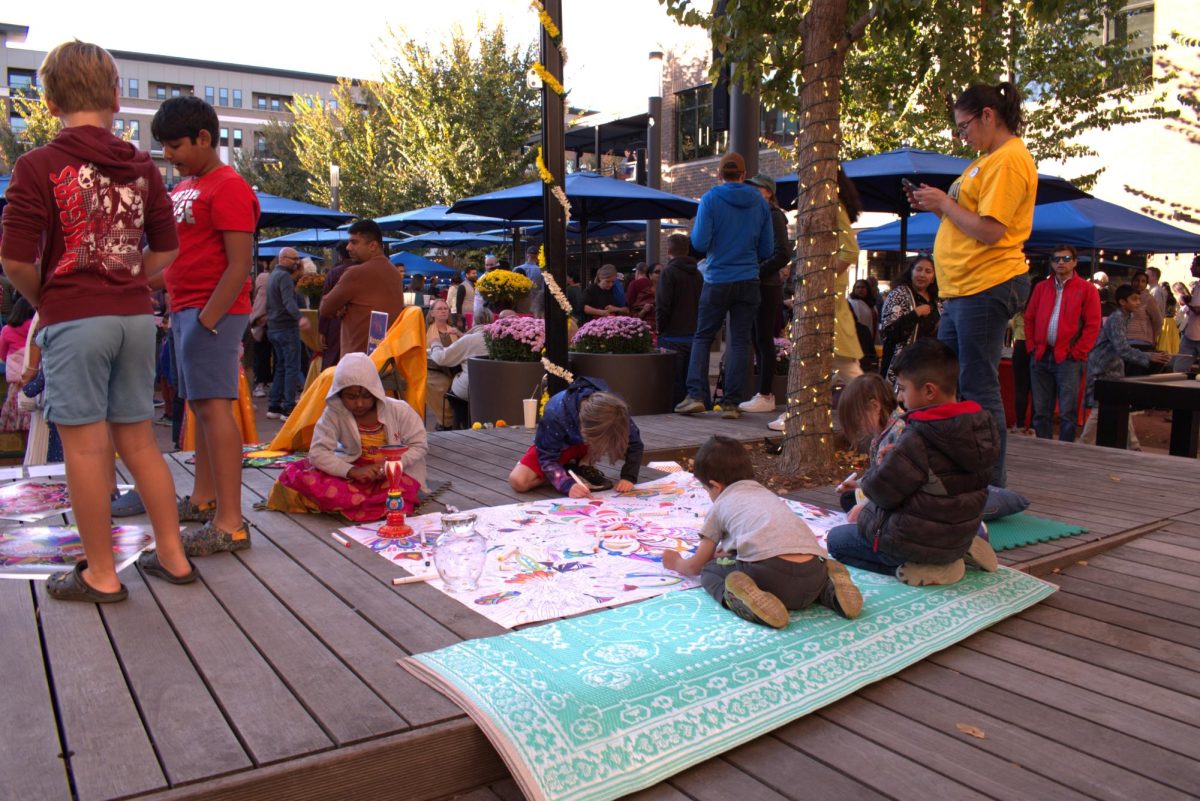


![Keep the New Gloves: Fighter Safety Is Non-Negotiable [opinion]](https://hilite.org/wp-content/uploads/2024/12/ufcglovescolumncover-1200x471.png)






!["Wicked" poster controversy sparks a debate about the importance of accuracy versus artistic freedom [opinion]](https://hilite.org/wp-content/uploads/2024/11/riva-perspective-cover-1200x471.jpg)





































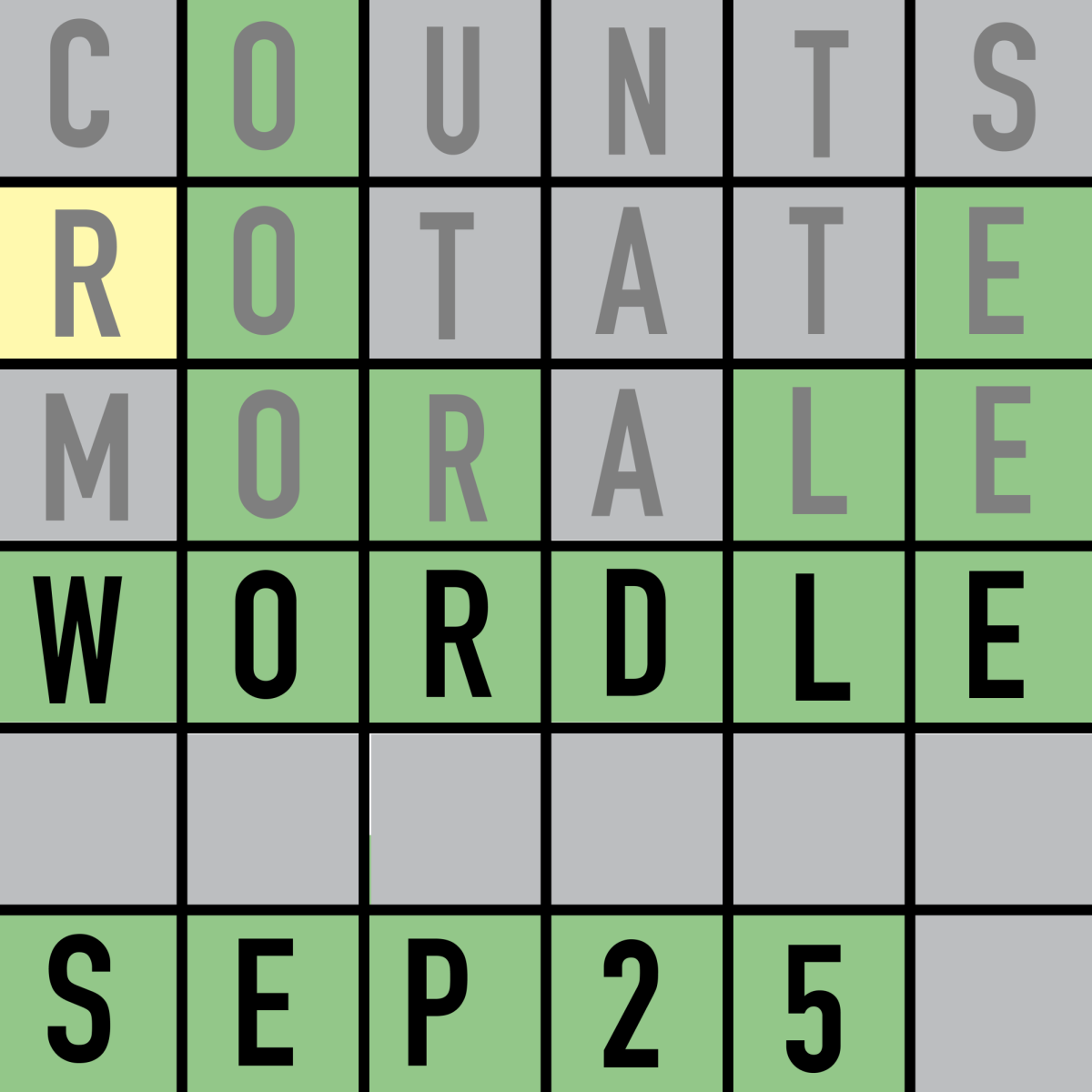



![Review: “We Live in Time” leaves you wanting more [MUSE]](https://hilite.org/wp-content/uploads/2024/12/IMG_6358.jpg)
![Review: The premise of "Culinary Class Wars" is refreshingly unique and deserving of more attention [MUSE]](https://hilite.org/wp-content/uploads/2024/12/MUSE-class-wars-cover-2.png)
![Introducing: "The Muses Who Stole Christmas," a collection of reviews for you to follow through winter [MUSE]](https://hilite.org/wp-content/uploads/2024/12/winter-muse-4.gif)
![Review: "Meet Me Next Christmas" is a cheesy and predictable watch, but it was worth every minute [MUSE]](https://hilite.org/wp-content/uploads/2024/11/AAAAQVfRG2gwEuLhXTGm3856HuX2MTNs31Ok7fGgIVCoZbyeugVs1F4DZs-DgP0XadTDrnXHlbQo4DerjRXand9H1JKPM06cENmLl2RsINud2DMqIHzpXFS2n4zOkL3dr5m5i0nIVb3Cu3ataT_W2zGeDAJNd_E-1200x884.jpg)
![Review: "Gilmore Girls", the perfect fall show [MUSE]](https://hilite.org/wp-content/uploads/2024/11/gilmore-girls.png)
![Review in Print: Maripaz Villar brings a delightfully unique style to the world of WEBTOON [MUSE]](https://hilite.org/wp-content/uploads/2023/12/maripazcover-1200x960.jpg)
![Review: “The Sword of Kaigen” is a masterpiece [MUSE]](https://hilite.org/wp-content/uploads/2023/11/Screenshot-2023-11-26-201051.png)
![Review: Gateron Oil Kings, great linear switches, okay price [MUSE]](https://hilite.org/wp-content/uploads/2023/11/Screenshot-2023-11-26-200553.png)
![Review: “A Haunting in Venice” is a significant improvement from other Agatha Christie adaptations [MUSE]](https://hilite.org/wp-content/uploads/2023/11/e7ee2938a6d422669771bce6d8088521.jpg)
![Review: A Thanksgiving story from elementary school, still just as interesting [MUSE]](https://hilite.org/wp-content/uploads/2023/11/Screenshot-2023-11-26-195514-987x1200.png)
![Review: "When I Fly Towards You", cute, uplifting youth drama [MUSE]](https://hilite.org/wp-content/uploads/2023/09/When-I-Fly-Towards-You-Chinese-drama.png)
![Postcards from Muse: Hawaii Travel Diary [MUSE]](https://hilite.org/wp-content/uploads/2023/09/My-project-1-1200x1200.jpg)
![Review: "Ladybug & Cat Noir: The Movie," departure from original show [MUSE]](https://hilite.org/wp-content/uploads/2023/09/Ladybug__Cat_Noir_-_The_Movie_poster.jpg)
![Review in Print: "Hidden Love" is the cute, uplifting drama everyone needs [MUSE]](https://hilite.org/wp-content/uploads/2023/09/hiddenlovecover-e1693597208225-1030x1200.png)
![Review in Print: "Heartstopper" is the heartwarming queer romance we all need [MUSE]](https://hilite.org/wp-content/uploads/2023/08/museheartstoppercover-1200x654.png)




